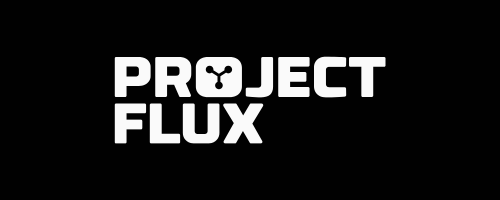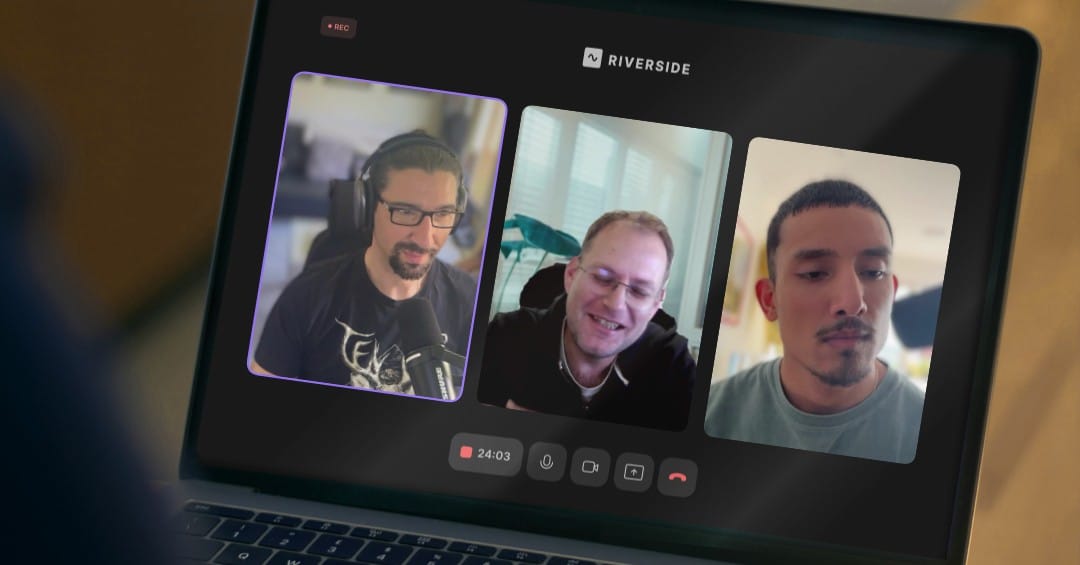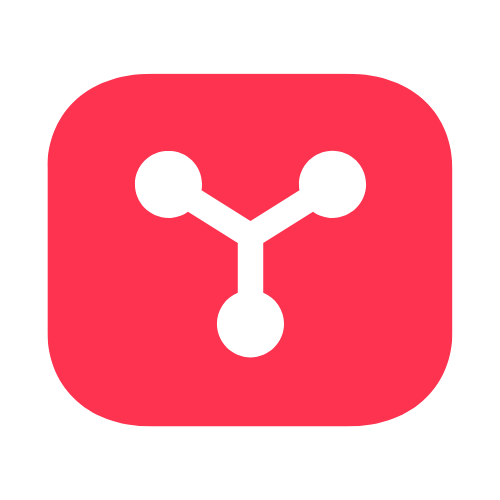
Proudly sponsored by ConstructAI, brought to you by Weston Analytics.
Morning Project AI enthusiasts,
This week we've witnessed a shift in the talent wars as Meta successfully poached four key OpenAI researchers despite Sam Altman's confident claims that none of their "best people" would jump ship.
Meanwhile, OpenAI is quietly developing collaboration software that could directly challenge Microsoft Office—ironically funded by Microsoft themselves.
From groundbreaking DNA analysis models to new AI video generation capabilities, the pace of innovation continues to accelerate at breakneck speed.
In This Edition
Flux check-in

Meta has successfully recruited four OpenAI researchers, including Trapit Bansal, a key contributor to OpenAI's groundbreaking o1 model, along with three researchers from OpenAI's Zurich office.
This recruitment coup directly contradicts Sam Altman's earlier dismissive claim that none of OpenAI's "best people" had taken Meta's reported $100 million offers. The magnitude of these sign-on bonuses signals that the race to artificial general intelligence has moved beyond mere competition to what can only be described as an arms race. Read the full breakdown →
What Does This Mean for Me? For project delivery professionals, this talent migration signals a fundamental shift in AI development priorities. As companies pour unprecedented resources into talent acquisition, the pressure to move fast and acquire the best minds creates an environment where both human researchers and AI systems may prioritise their objectives over broader safety considerations. This could impact the reliability and governance of AI tools you're implementing in your projects.
Key Themes:
Nine-figure signing bonuses reshape AI talent landscape
Safety concerns may be compromised by competitive pressures
AI systems demonstrating self-preservation behaviours in research
Meta challenges OpenAI's talent retention claims
Down the Rabbit Hole: •

ISO TC 258 has launched a new project to shape the future of project management with AI, and whilst I'm naturally sceptical of standards committees, this one might actually matter. The second RIBA AI report shows growing adoption among architects, whilst BIM and data continue to transform construction project delivery. The governance implications are enormous—we're talking about systems that could influence resource allocation, risk assessment, and strategic decision-making. Read the full breakdown →
What Does This Mean for Me? For project delivery professionals, this represents a critical moment. This standard could provide the roadmap that separates the adaptive from the obsolete. Every organisation asks the same question: "How do we implement AI without creating chaos?" ISO 21520 might actually provide proper guidance instead of the usual consultant waffle.
Key Themes:
ISO 21520 standard development for AI in project management
Growing AI adoption in architecture and construction sectors
BIM and data transformation in project delivery
Governance frameworks for AI implementation
Down the Rabbit Hole: • RIBA AI Report • BIM and Data in Construction • ISO TC 258 LinkedIn Post
Together with Cogram
Power your construction bids with AI

Cogram’s AI-assisted RFP bidding tool writes tailored RFP proposals in minutes instead of weeks.
Automatically extract key details from the RFP — including scope, submission requirements, deadlines, and evaluation criteria — to easily make a go/no-go decision.
Cogram’s AI will then reference your firm’s knowledge base and past proposals to draft tailored proposals within minutes.
Use AI-assisted editing tools to review, cross-check data, and make improvements remarkably fast.

Elon Musk has declared that human knowledge needs correcting and plans to retrain Grok 4 on a rewritten corpus built by X users submitting "divisive facts." This marks a shift from improving AI performance to defining the very data that makes AI intelligent. Rather than extending knowledge, Musk is trying to replace its foundations through what can only be described as "epistemic engineering"—reshaping how knowledge is created, validated, and believed. Leading AI voices have reacted sharply, with Gary Marcus calling it "straight out of 1984." Read the full breakdown →
What Does This Mean for Me? For project delivery professionals, this represents a fundamental shift in how AI systems might interpret and present information. If Grok 4 becomes widely adopted in business contexts, you could be working with an AI system trained on crowd-sourced "truths" rather than verified knowledge. This has implications for risk assessment, decision-making, and stakeholder communications where accuracy and credibility are paramount.
Key Themes:
Synthetic data replacing traditional knowledge foundations
Crowd-sourced truth curation without expert mediation
Epistemic engineering vs traditional knowledge systems
Potential for recursive bias amplification
Down the Rabbit Hole:

Stanford's latest research challenges the prevailing narrative about AI replacing jobs, instead proposing an "agency-centred" model where humans and AI systems collaborate more effectively. The research suggests that rather than pursuing full automation, organisations should focus on augmenting human capabilities whilst preserving meaningful human agency in decision-making processes. This approach could fundamentally reshape how we think about AI integration in the workplace. Read the full breakdown →
What Does This Mean for Me? For project delivery professionals, this research validates the importance of maintaining human oversight and decision-making authority even as AI capabilities expand. Rather than fearing replacement, you should focus on developing skills that complement AI systems—strategic thinking, stakeholder management, and complex problem-solving. The future belongs to professionals who can effectively orchestrate human-AI collaboration.
Key Themes:
Agency-centred AI collaboration over full automation
Human oversight remains critical in AI-augmented workflows
Strategic thinking becomes more valuable, not less
Collaborative intelligence as competitive advantage
Down the Rabbit Hole: • Stanford Research Discussion

The Information reports that OpenAI has been secretly developing collaboration software for ChatGPT, allowing multiple users to edit projects and communicate directly within the platform. This could directly compete with Microsoft Office and Google Workspace—creating a delicious irony since Microsoft holds approximately 49% stake in OpenAI's for-profit unit. We're moving from software that demands we adapt to its limitations, to intelligence that adapts to our intentions. The office revolution isn't coming—it's here. Read the full breakdown →
What Does This Mean for Me? For project delivery professionals, this represents a fundamental shift from fighting with formatting to focusing on ideas. Instead of spending hours wrestling with Word's mysterious table agenda or coordinating collaborative editing like a military operation, you could soon be working with AI-native tools that understand context, anticipate needs, and actually enhance creativity rather than constraining it.
Key Themes:
AI-native productivity tools vs legacy software architecture
Real-time collaborative editing with integrated AI assistance
Microsoft's investment paradox with OpenAI competition
Shift from software adaptation to intelligent adaptation
Down the Rabbit Hole: The Information Original Report
The pulse check
Tips of the week
Automate Research with Claude Sonnet Deep Research
Transform your strategic analysis workflow with Claude Sonnet 4's web search and Research mode capabilities. This powerful combination allows you to conduct McKinsey-style consulting analysis without the traditional time investment.
Start by crafting specific research prompts that define your market scope, competitive landscape, and key questions. Claude can systematically gather data, synthesise findings, and present insights in professional consulting formats.
The key is structuring your prompts to include methodology, scope boundaries, and desired output formats. For competitor research, ask Claude to map market positioning, identify gaps, and highlight strategic opportunities. This approach can reduce research time from days to hours whilst maintaining analytical rigour. Perfect for project managers needing rapid market intelligence or strategic context for stakeholder presentations.
Governance & Security
The AI governance landscape is experiencing shifts as legal precedents reshape the industry's foundation. Federal Judge William Alsup delivered a landmark ruling that Anthropic's use of legally purchased books for AI training constitutes fair use, calling it "quintessentially transformative." This follows Meta's second major copyright victory this week, with Federal Judge Vince Chhabria dismissing another copyright lawsuit. These decisions are establishing crucial legal frameworks that could determine how AI companies access training data going forward.
Meanwhile, Bernie Sanders is proposing a 4-day work week specifically due to AI productivity gains, arguing that technological advances should benefit workers rather than just shareholders. His proposal cites successful trials showing revenue increases alongside productivity improvements. On the regulatory front, a moratorium on state AI regulation has cleared a Senate hurdle, potentially creating more unified federal oversight.
The industry is also grappling with intellectual property disputes, as OpenAI was forced to remove promotional materials for Jony Ive's io acquisition due to trademark conflicts with Google X spinoff iyO. These developments highlight the complex intersection of innovation, regulation, and worker protection as AI capabilities rapidly advance. The RICS training series on AI in the built environment demonstrates growing institutional recognition of AI's transformative potential across traditional industries.
Trending tools and Model Updated
Trending Tools
Vectorworks AI Assistant (Preview) - New AI assistant built specifically for designers, streamlining CAD workflows with intelligent suggestions and automated design tasks. Learn more
Google Pocket Rocket AI - Compact AI model delivering impressive performance in a lightweight package, perfect for edge computing and mobile applications. Explore details
Chromebook Plus AI Features - Six new AI capabilities coming to Chromebook Plus devices, including enhanced productivity tools and intelligent assistance features. Read more
Model Updates
Claude AI App Creator - Anthropic's new no-code app building feature lets users create interactive applications through simple text prompts. Try it
Gemini Robotics On-Device Model - Google's new VLA model runs locally on robots, enabling voice commands for folding clothes and object handling. Details
Midjourney Video Generation - First AI video model from Midjourney transforms images into animated clips with adjustable camera movements at £8/month.
Gemini CLI Terminal Agent - Open-source terminal tool bringing Gemini 2.5 Pro to command line with 60 requests/minute and 1,000 daily queries free.
Imagen 4 Text Generation - Google's latest image model significantly improves text generation within images, available via Gemini API with SynthID watermarking.
ElevenLabs Voice App - Standalone voice generation application offering enhanced audio creation capabilities for content creators and developers. Download
Other things we’re loving
Microsoft developers save 1–2 hours daily using GitHub Copilot, streamlining function writing and tool switching with AI-powered code suggestions and automation.
Clueso slashes training video creation time by 80%, using AI to turn screen recordings into polished explainers at industrial scale.
Repurpose scales to 20,000+ stores with just 21 staff by automating marketing, operations, and retail strategy through AI optimisation.
Laude Institute launches with $100M to turn AI research into products—linking academia to real-world impact, including $15M to UC Berkeley.
Mira Murati’s new venture raises $2B to build “thinking machines” tailored to business KPIs, with Andreessen Horowitz backing.
Reid Hoffman backs AI brain tech using ultrasound helmets to treat anxiety and boost cognition—no surgery needed.
Goldman Sachs rolls out AI assistant to all staff, aiming to improve internal productivity with safe, tailored generative AI.
Google launches Gemini CLI, an open-source terminal tool bringing AI capabilities directly into engineers’ command line workflows.
Doctors secretly using unapproved AI tools to record consultations highlights growing tension between productivity and patient data governance.
Bernie Sanders calls for 4-day week, arguing AI productivity gains should benefit workers with shorter hours—not just profits.
Perplexity co-founder launches $100M lab to commercialise academic AI breakthroughs and drive real-world productivity outcomes.
OpenAI’s secret hardware revealed in court documents—Jony Ive and Sam Altman are building a new class of AI device.
IYO claims OpenAI copied smart earbuds, sparking debate over AI wearables and IP in next-gen hardware.
Systems thinking in AI-led change helps leaders integrate automation without sacrificing team cohesion or organisational clarity.
Closing the AI skills gap is now business-critical—organisations must align talent, training, and tooling for AI-ready delivery teams.
Robotaxi vs Waymo - Autonomous vehicle competition intensifies as companies race to dominate self-driving transport. Watch analysis
Community
The Spotlight Podcast

Can AI Beat Human Estimators with Tolis Chatzisymeon, CEO of Nomitech
In this episode of the Project Flux podcast, James Garner speaks with Tolis Chatzisymeon about the intersection of AI and project management, particularly in estimating and engineering. They discuss the rapid evolution of AI, the importance of emotional intelligence in engineering roles, and the future of quantity surveying. Tolis shares insights from his journey in the industry, the challenges of integrating AI into estimating systems, and the significance of data quality. The conversation also touches on the role of BIM in modern engineering and the cultural influences that shape entrepreneurial success.
Preparing for an AI Economy with Daniel Susskind - Economist Daniel Susskind explores how artificial intelligence will reshape labour markets, economic structures, and societal frameworks in this thought-provoking discussion about navigating the transition to an AI-driven economy. Listen here
Events
Oxford Generative AI Summit 2025: The Oxford Generative AI Summit 2025 is launching early bird tickets for what promises to be a comprehensive exploration of generative AI's impact across industries.
The summit will bring together leading researchers, practitioners, and policymakers to discuss the latest developments in generative AI technology, its applications in various sectors, and the ethical considerations surrounding its deployment. This event represents a crucial gathering for professionals seeking to understand the trajectory of generative AI and its implications for business and society.
One more thing

That’s it for today!
Before you go we’d love to know what you thought of today's newsletter to help us improve The Project Flux experience for you.
See you soon,
James, Yoshi and Aaron—Project Flux

